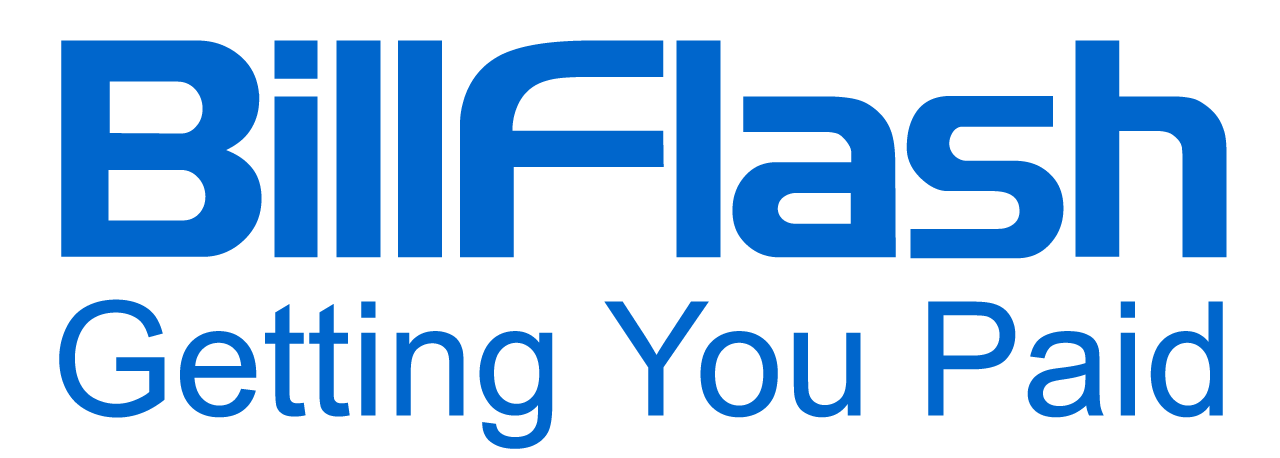Unravel the complexities of medical collections management with our comprehensive guide.
In the complex landscape of healthcare, medical collections management plays a crucial role in ensuring the financial stability of medical facilities and practices. This comprehensive guide aims to provide a clear understanding of the basics, key components, challenges, and best practices involved in medical collections management.
The Basics of Medical Collections Management

Before delving into the intricacies of medical collections management, it is important to define its fundamental concepts and highlight its significance.
Medical collections management refers to the systematic process of tracking and recovering outstanding patient balances and insurance claims. It encompasses various tasks to ensure the timely and accurate reimbursement for healthcare services provided. A well-executed collections management strategy enables healthcare organizations to maintain a healthy cash flow while delivering quality patient care.
Effective medical collections management involves several key components. One of the primary aspects is the accurate and efficient billing process. Healthcare providers must ensure that they submit correct and complete claims to insurance companies, including all necessary documentation and coding. This helps to minimize claim denials and delays in reimbursement.
Another crucial element of collections management is the follow-up on unpaid or denied claims. Healthcare organizations must have a systematic approach to track outstanding balances and actively pursue payment from patients and insurance companies. This may involve sending regular reminders, making phone calls, or even engaging in negotiations to resolve any disputes or discrepancies.
Furthermore, medical collections management also includes managing patient payment plans and negotiating settlements. In some cases, patients may be unable to pay their medical bills in full. In such situations, healthcare providers may need to work with patients to establish manageable payment plans or negotiate settlements that are mutually beneficial.
Defining Medical Collections Management
Medical collections management refers to the systematic process of tracking and recovering outstanding patient balances and insurance claims. It encompasses various tasks to ensure the timely and accurate reimbursement for healthcare services provided. A well-executed strategy enables healthcare organizations to maintain a healthy cash flow while delivering quality patient care.
One of the primary aspects is the accurate and efficient billing process. Healthcare providers must ensure that they submit correct and complete claims to insurance companies, including all necessary documentation and coding. This helps to minimize claim denials and delays in reimbursement.
Another crucial element of collections management is the follow-up on unpaid or denied claims. Healthcare organizations must have a systematic approach to track outstanding balances and actively pursue payment from patients and insurance companies. This may involve sending regular reminders, making phone calls, or even engaging in negotiations to resolve any disputes or discrepancies.
Furthermore, medical collections management also includes managing patient payment plans and negotiating settlements. In some cases, patients may be unable to pay their medical bills in full. In such situations, healthcare providers may need to work with patients to establish manageable payment plans or negotiate settlements that are mutually beneficial.
Importance of Medical Collections Management
The importance of effective medical collections management cannot be overstated. With rising healthcare costs and an increasing number of patients relying on insurance coverage, healthcare providers face the challenge of dealing with complex billing and reimbursement processes. Utilizing a comprehensive collections management approach is essential to optimize revenue, prevent financial losses, and maintain the financial stability of medical practices.
One of the primary reasons why medical it is crucial is the impact it has on the financial health of healthcare organizations. Unpaid patient balances and denied insurance claims can significantly affect the cash flow of medical practices, leading to financial instability and potential disruptions in delivering quality patient care. By implementing effective collections management strategies, healthcare providers can minimize revenue leakage and ensure a steady stream of income.
Moreover, it also plays a vital role in maintaining the overall financial stability of healthcare organizations. With the ever-increasing costs of providing healthcare services, it is essential for medical practices to optimize revenue and prevent financial losses. By actively managing collections, healthcare providers can identify and address any gaps or inefficiencies in their billing and reimbursement processes, leading to improved financial performance.
Additionally, effective collections management contributes to the sustainability of healthcare practices. By maximizing revenue and minimizing financial losses, medical practices can invest in necessary resources, such as advanced medical equipment, staff training, and infrastructure improvements. This, in turn, enables healthcare organizations to enhance the quality of patient care and stay competitive in the ever-evolving healthcare industry.
Key Components

Medical collections management involves various key components that work in synergy to ensure the smooth functioning of healthcare revenue cycles.
In addition to patient registration and data collection, medical collections management encompasses several other critical aspects that contribute to the overall efficiency and effectiveness of the revenue cycle.
Patient Registration and Data Collection
Accurate patient registration and data collection are vital aspects of medical collections management. Collecting complete and up-to-date patient information at the point of registration facilitates efficient billing and supports accurate insurance claim submissions. It is crucial to ensure that patient data is validated, verified, and protected in compliance with privacy regulations such as the Health Insurance Portability and Accountability Act (HIPAA).
Furthermore, patient registration and data collection play a significant role in enhancing the patient experience. By capturing comprehensive information, healthcare providers can personalize patient care, tailor treatment plans, and ensure seamless coordination across various healthcare settings.
Medical Billing and Coding
Medical billing and coding are integral to medical collections management as they determine the accuracy of reimbursement claims. Skilled medical coders translate medical procedures, diagnoses, and treatments into standardized codes that insurance companies use to process claims. Thorough coding practices greatly impact successful claims submissions and minimize claim denials, optimizing the revenue cycle.
Moreover, medical billing and coding professionals play a crucial role in ensuring compliance with regulatory requirements. They must stay updated with the latest coding guidelines and industry regulations to accurately document and bill for healthcare services. Regular training and ongoing education for billing and coding staff are essential to stay updated with evolving industry regulations and coding guidelines.
Insurance Verification and Authorization
Prior to providing medical services, it is essential to verify patient insurance coverage and obtain necessary authorization. Insurance verification helps prevent claim denials due to eligibility issues or coverage limitations. Accurate authorization ensures that services are provided within the approved benefits, minimizing potential billing disputes. Timely verification and authorization processes contribute to streamlined reimbursements and efficient collections management.
Insurance verification and authorization also play a vital role in managing patient expectations and financial responsibilities. By communicating insurance coverage details and potential out-of-pocket costs upfront, healthcare providers can foster transparency and build trust with patients.
In conclusion, medical collections management involves a comprehensive approach that goes beyond patient registration and data collection. It encompasses medical billing and coding, insurance verification and authorization, and various other components that work together to optimize revenue cycles, ensure compliance, and enhance the overall patient experience.
Challenges in Medical Collections Management
Regulatory Compliance Issues
The healthcare industry is subjected to numerous regulatory requirements and compliance standards. Medical collections management must navigate complex regulations, such as the Health Insurance Portability and Accountability Act (HIPAA) and the Affordable Care Act (ACA). Failure to adhere to these regulations can lead to severe penalties and damage to a healthcare organization's reputation.
Technological Challenges
In today's digital age, healthcare organizations face technological challenges when implementing medical collections management systems. Integration shortcomings, compatibility issues, and interoperability problems between various systems hinder seamless operations. Investing in robust and scalable technology infrastructure is vital to overcome these challenges and optimize collections management processes.
Patient Confidentiality and Data Security
Protecting patient confidentiality and ensuring data security are critical considerations in medical collections management. Healthcare organizations must adhere to strict privacy regulations to safeguard patient information from unauthorized access, theft, or breaches. Implementing robust data security measures, such as encrypted databases, firewalls, and secure communication channels, is essential to mitigate the risk of data breaches and protect patient trust.
Best Practices in Medical Collections Management

To overcome the identified challenges, healthcare providers can adopt various best practices.
Implementing Efficient Billing Systems
Investing in advanced and efficient billing systems can greatly enhance collections management. Automating billing processes, incorporating claim scrubbing functionalities, and utilizing electronic data interchange (EDI) capabilities streamline billing workflows, minimize errors, and expedite claims processing. Robust billing systems integrate seamlessly with electronic health records (EHR) systems, facilitating accurate patient data capture and improving billing accuracy.
Enhancing Patient Communication
Clear and effective patient communication is a cornerstone of successful collections management. Timely and transparent communication regarding patient financial responsibilities, insurance coverage, and payment options fosters patient understanding and cooperation. Implementing patient portals, convenient payment methods, and providing financial counseling services contribute to improved patient satisfaction and increased collections.
Ensuring Compliance and Data Security
Prioritizing compliance and data security is crucial. Regular staff training, strict adherence to privacy regulations, and ongoing monitoring of data security practices are essential to mitigate risks. Conducting regular audits and assessments of the processes helps identify areas for improvement and reinforce compliance measures.
In conclusion, understanding medical collections management is vital for healthcare organizations to navigate the complexities of the revenue cycle successfully. By comprehending the basics, key components, challenges, and best practices, healthcare providers can optimize collections, maintain financial stability, and deliver quality patient care in an ever-evolving healthcare landscape.
Going Forward with BillFlash
With BillFlash, practices can go further by optimizing their revenue cycle, efficiently collecting past-due A/R, and providing patients with a convenient and secure payment experience. With a user-friendly interface and industry experts available for all your billing, payments and collections needs, BillFlash is the perfect solution for small practices.

